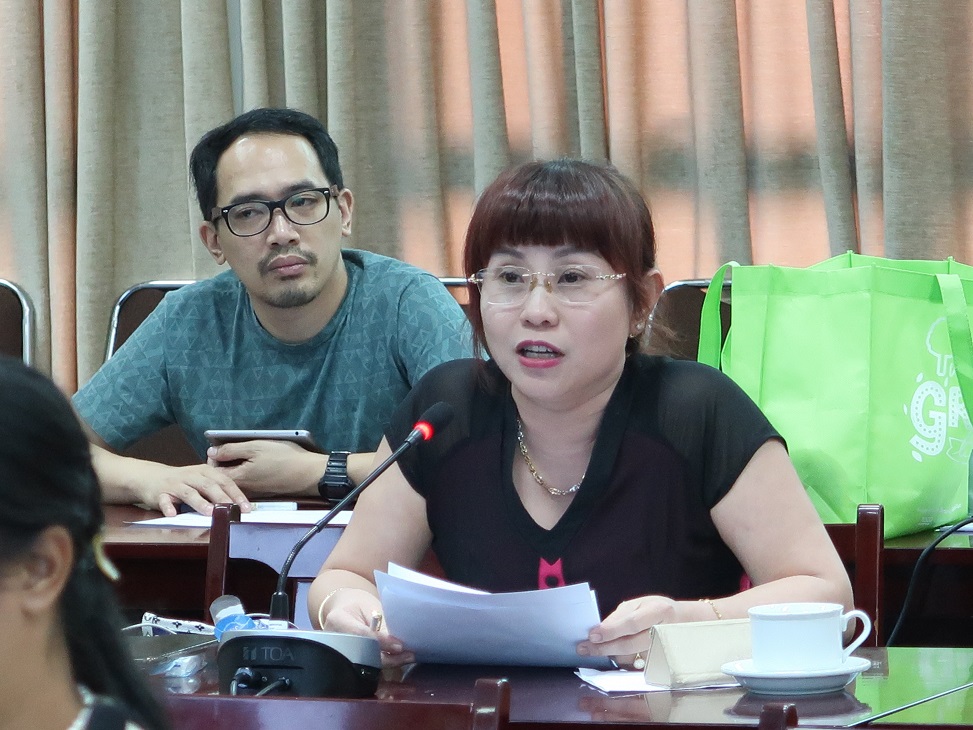A New Outlook on Teaching and Learning
 “In Southeast Asia, our classrooms usually are teacher focused,” Pham Tran Thuy Anh, a lecturer at the University of Foreign Languages, Hue University said. “We focus on teaching knowledge, but not in a whole person way.” She attended the United Board’s 2018 Whole Person Education Academy because she wanted to find new ideas to motivate her teaching and, in turn, her students’ learning. The two-week program, led by the Ateneo Teacher Center at Ateneo de Manila University, helped participants understand teaching as a vocation, adopt a student-centered pedagogy, and practice new ways to connect with students.
“In Southeast Asia, our classrooms usually are teacher focused,” Pham Tran Thuy Anh, a lecturer at the University of Foreign Languages, Hue University said. “We focus on teaching knowledge, but not in a whole person way.” She attended the United Board’s 2018 Whole Person Education Academy because she wanted to find new ideas to motivate her teaching and, in turn, her students’ learning. The two-week program, led by the Ateneo Teacher Center at Ateneo de Manila University, helped participants understand teaching as a vocation, adopt a student-centered pedagogy, and practice new ways to connect with students.
The program brought Dr. Thuy Anh back to Ateneo, where she received her PhD in English language and literature in 2014 with support from the United Board Faculty Scholarship Program. The campus was familiar but the academy’s focus on whole person education was new to her. The program helped her develop her own definition of whole person education: to Dr. Thuy Anh, it means that students “should not only improve their knowledge but also their attitude, their behavior, and their beliefs about life.” That changes the role of the teacher from someone who delivers lectures to someone who “offers students knowledge and also helps them develop good personal characteristics.”

Dr. Thuy Anh (left) at the Whole Person Education Academy.
Dr. Thuy Anh wanted to shift away from the teacher-centered style used when she was an undergraduate. “Students then were not free enough,” Dr. Thuy Anh said. “We were too dependent on the teacher.” Teachers need to open two-way channels for communication if they are to help their students to grow as critical thinkers and innovators. “We need to listen to our students,” she said. “Students are more motivated to learn when they are encouraged to give feedback on material or asked to share their feelings.” Dr. Thuy Anh sees positive results from her new approach: her students are more active in class and more willing to seek her advice.
Teachers also should use technology to connect with today’s tech-savvy students – who Dr. Thuy Anh describes as “the 4G generation.” At the academy, participants learned how technology has changed students’ habits and how to adapt teaching approaches accordingly. Young people are used to receiving content at a fast pace, so teachers should divide their lessons into smaller chunks to keep students focused on the task. Students receive fast reactions to their social media posts and instant scores in online games, so teachers should give them prompt feedback about their performance in class or on assignments.
Dr. Thuy Anh has shared her new insights with colleagues at Hue University and educators from other institutions in Vietnam. “Teachers want to involve students more and make the classroom more interesting,” she said, “so they are willing to learn more.”
